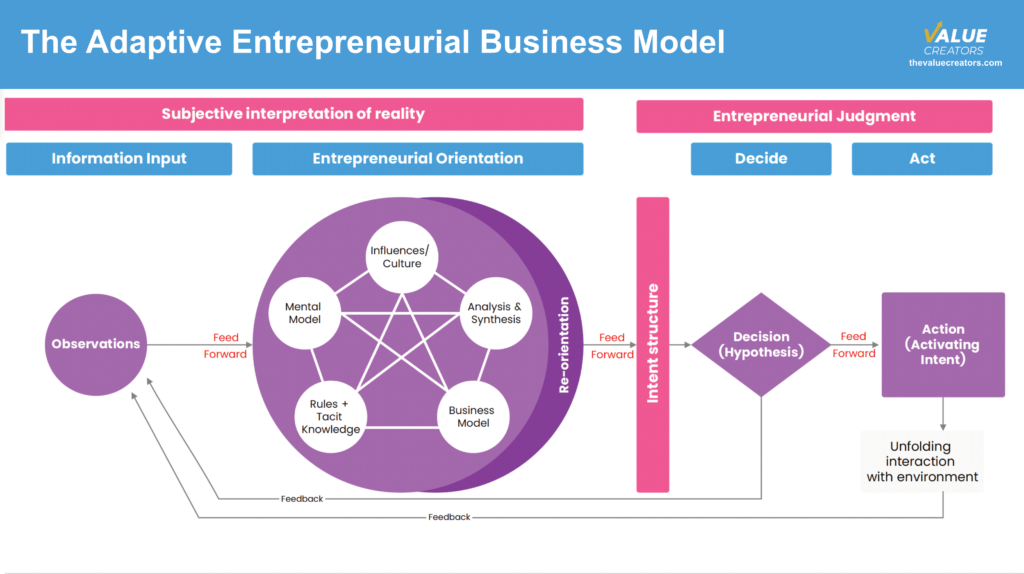Episode #27. Mark McGrath on Entrepreneurship Versus Managerialism

Adaptive entrepreneurship refers to a dynamic approach to business leadership and business practice that embraces continuous learning, rapid adaptation, and the creation of novel ideas. Mark McGrath and Hunter Hastings discuss the critical aspects of adaptiveness in dynamic environments. They explore the aftermath of failure to adapt to nonlinear external change. The conversation emphasizes the importance of the shift from traditional management to adaptive leadership, as defined by a fusion of entrepreneurial economics and John Boyd’s unique approach to “the whirl of reorientation”, and focusing on the importance of influencing and inspiring collaboration, as contrasted with managerial control.
Resources:
AGLX – Consulting & Coaching Group:
The Adaptive Entrepreneurial Business Model Graphic:
Mark McGrath on LinkedIn:
https://www.linkedin.com/in/markjmcgrath1/
Show Notes:
0:00 | Intro
01:50 | Rethinking Management Amid Uncertainty
04:23 | Entrepreneurship: Navigating Uncertainty for Value Creation
06:38 | Entrepreneurship as a Continuous, Never-Ending Process
08:50 | Massive Mismatch: Preserving vs. Exploring New Futures
14:16 | Disruptive Innovation
15:19 | Entrepreneurial Method as Continuous Ongoing Loop of Value Creation
20:21 | Idea of Entrepreneurial Intent
22:42 | Positive and Negative Feedback: Feedback Loop
25:12 | Organizational Structure and Empowerment in Business and the Military
34:56 | Quantification VS Qualitative Analysis
38:02 | Rethinking Management VS Embracing Adaptive Systems
39:20 | Wrap-Up: Mark McGrath’s Concept of Leadership
Knowledge Capsule:

Defeating Linear Thinking::
- Failure in business often stems from an inability to adapt to nonlinear external change.
- Possessing resources is insufficient without the right frame of thinking.
- Success requires constant adaptation to unpredictable challenges.
Boyd’s Leadership Philosophy:
- Emphasis on leadership quality over command and control.
- Leadership is defined as the art of influencing and inspiring collaboration.
- Appreciation leadership focuses on recognizing worth and understanding how things work.
Reinventing Management:
- Hunter Hastings proposes to replace the term “management” with an adaptive system.
- Mark’s response: we don’t use the term”management” and don’t think about it. Leadership quality, not a title in a hierarchy, is crucial for success.
- Advocacy for a mindset shift away from traditional management approaches.
Continuous Adaptation:
- Organizations must continually reinvent themselves for sustained success.
- Industry leaders like Steve Jobs and Warren Buffett exemplify the importance of creating novel ideas.
- The ability to adapt to changing landscapes is paramount for thriving in dynamic environments.
Human-Centric Leadership:
- Appreciation leadership promotes human-to-human interactions.
- Recognition of worth and understanding of how things work are crucial.
- Contrasts with isolating command and control approaches.
Creating Mismatches for Success:
- Mark McGrath encourages the cultivation of mismatches or novel ideas.
- Adaptive systems recognizing value and fostering continuous learning are keys to success.
- Gaining a competitive edge involves disrupting the status quo with innovative thinking.


Responses